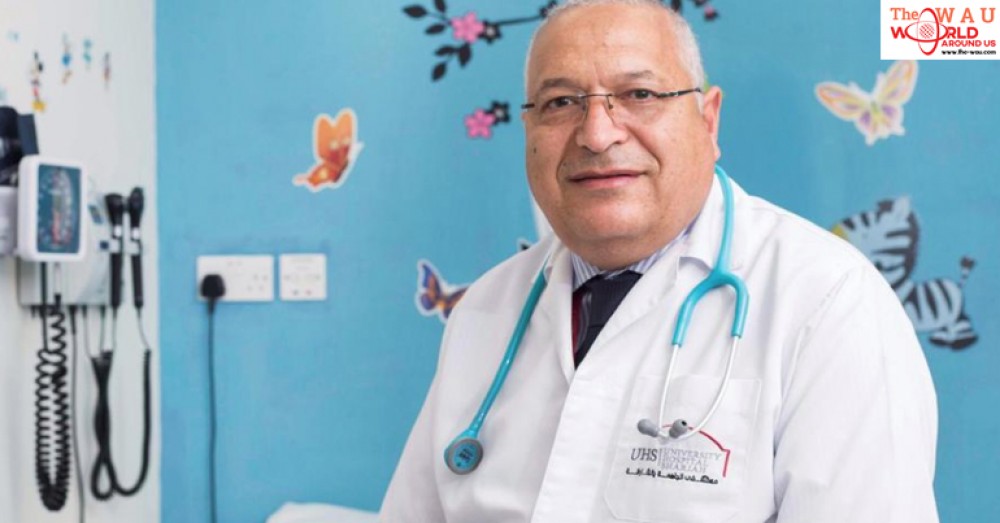A doctor has warned parents about the dangers of sepsis, after a three year-old Emirati girl in Sharjah nearly died from a throat infection.
The child, Reem, was taken to University Hospital Sharjah suffering from a high temperature and breathing difficulties due to a bacterial throat infection which had spread to her blood, triggering body-wide inflammation, resulting in sepsis.
She was treated with antibiotics immediately and admitted to the pediatric ICU. But within 30 minutes her oxygen saturation and blood pressure both began to drop rapidly, and she developed blue skin – all of which are red flags for the condition.
Sepsis is an uncommon, but serious complication which occurs in response to an infection. It can develop from a bacterial or viral infection, and occasionally as a result of a fungi or parasite. Once it develops, patients are at risk of dying – even in those with no signs of organ failure the chances are between 15 to 30 per cent, which rises to 40 to 60 per cent when the sepsis is severe.
“Signs of sepsis include a high temperature and the bad general condition of the child, which affects all of the functions of the child – the consciousness, the social interaction, the food, the crying, all of it,” said Dr Naguib Reheim, consultant paediatrician and paediatric diabetologist, who treated the girl.
“One of the most important signs is also the blood pressure. If the blood pressure starts to drop this is a bad sign for sepsis. And this occurred in this girl,” he said.
Doctors administered an antibiotic early, and treated her aggressively from the start, supporting her through mechanical ventilation.
She has now made a full recovery, but doctors said if she they had not started treatment in the first two hours, she would not have survived.
Dr Abdel Reheim said the girl had been suffering from a persistent cough and a high fever for two days and shortness of breath for one day by the time she was taken to hospital. She had been treated by doctors outside before she was admitted to hospital.
Tests showed that she was suffering from haemophilus influenzae, which was found in both her lungs and bloodstream. Children in the UAE are vaccinated against haemophilus influenzae type B, but there are several types, said Dr Reheim.
“This respiratory failure can be caused by a viral infection. It can be caused by a bacterial infection. It can be caused by an allergy or other causes,” said Dr Reheim.
“But from the start we suspected a bacterial infection because the child had a high fever, rapid progress of the disease and a severe degree of respiratory illness and this usually occurs with a bacterial infection.”
Dr Reheim said if a child has only a mild fever and their general condition is good, they can afford to wait it out a day to see how their immune systems responds.
But if they have a high fever, or are suffering from convulsions, difficulty breathing or are not drinking or eating, they should be seen by a doctor immediately.
Experts say that doctors do not always spot the signs of sepsis, which is the primary cause of death by infection around the world.
“If we hadn’t thought about it, we could have missed it. But Alhamdulillah, with this girl we started early and aggressively. We suspected it. We treated it so the result was marvellous,” added Dr Reheim.
Share This Post















